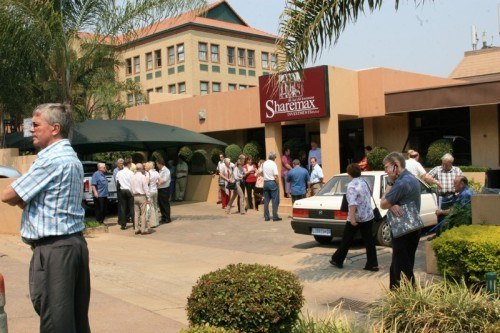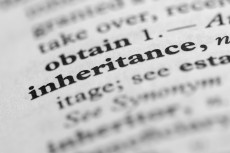The Companies and Intellectual Property Commission (CIPC) is on track to release a pivotal report by October, which should shed light on the role the South African Reserve Bank (Sarb) played in the collapse of various property syndication schemes such as Sharemax.
The report may even result in a scenario where investors could be compensated for their losses if it indicates that the industry imploded due to regulatory irregularities.
Read: CIPC investigation into who sank Sharemax and other schemes has ground to a halt
The CIPC’s investigation started in 2022 when it began probing the Nova property group’s failure to repay former Sharemax investors within the 10 years it was tasked to.
Listen/read: ‘The CIPC was forced to intervene in the Nova mess’
However, the scope of the investigation was soon expanded to include the role various regulators, such as the Sarb, played in the collapse of Sharemax and other schemes such as Realcor, Amatenda, and King Financial Services.
The investigation so far has resulted in the CIPC writing a “preliminary report”, which has not been made public. However, the CIPC sent a letter to regulators in April to invite them to participate in the inquiry, which revealed that the investigation has uncovered “legal inconsistencies, procedural anomalies and potential jurisdictional over-reach” related to one or more of the regulators.
The CIPC also invited the National Prosecuting Authority (NPA) and the South African Revenue Service to the inquiry.
The inquiry was postponed, but is now set to take place towards the end of October, after which a final report will be compiled.
Cuma Zwane, a senior investigator at the CIPC and the leader of the investigation, said during an interview with RSG Geldsake last week that the CIPC aims to release the report before the end of the month. Following that, the inquiry will take place 30 business days later, ostensibly towards the end of October.
‘Other fingerprints’
“I didn’t expect that the process would take this long because all we thought was we’ll just tackle compliance by Nova and then simply move on only to find that there are other, I would say, fingerprints on the scene of the crime as it were, which then led us to other regulators and various other pieces of evidence, which just prolonged the process of concluding on the Nova specifically,” said Zwane.
He said that during the investigation: “We noticed that because companies ended up being liquidated, others winding up and others being in business rescue, et cetera, et cetera, all that was an outcome of what we see as may have been the result of the incorrect application of the law by another organ [of the] state.”
He added that a restitution process may follow if there was unlawful conduct. “I think it’s necessary that in the interests of justice, there be some form of restitution and, where applicable, compensation for the wrongs done on these innocent investors and directors.
“By that we mean putting the companies who, in our estimate, [were] wrongfully shut down in a position that they would’ve been had the interventional or interception of the state not taken place. It’s one of the outputs we expect,” he said.
Following the inquiry, the CIPC will compile a final report based on the preliminary report and the responses from regulators, which could be referred to the NPA for investigation if it contains proof of unlawful conduct of regulators or their functionaries at the time.
Zwane said the CIPC is not mandated to hold an official legal hearing such as a court hearing but can only set in motion “a process that gets the parties that are affected in one room in following or guided rather by Section 41 of the Constitution where we have to avoid basically going to court prior to exhausting the remedies provided for organs of state to interrogate inconsistency in the application of law.”
He added that once the regulators or organs of state “arrive at a satisfactory sort of central position”, the case may be referred to the NPA, which may trigger a process of redress.
Zwane said if it is found that there was “some form of corruption or fraud or misrepresentation in court, it will lead to the NPA either triggering either Chapter 5 or 6 of Poca [Prevention of Organised Crime Act], whatever will be applicable in order to redress”.
Reserve Bank’s role
The role of the Sarb will be one of the focal points, as its finding that Sharemax and the other schemes’ funding models contravened the Banks Act led to their implosion.
This is a criminal offence, but to date not a single individual related to any of the syndications has been prosecuted, and the NPA has issued several nolle prosequi (‘declining to prosecute’) to many individuals forming part of the syndications leadership.
Read:
The Sarb wrongly scuttled Realcor – CIPC.
No prosecution for Sharemax implosion – NPA
Did Sharemax contravene the Banks Act?
Zwane said the findings (of the investigation) point primarily to the bank’s supervision department at the time and related to Sharemax.
“I don’t want to say that Reserve Bank at large (stet) has answers to give. There may be certain individuals who used to work for the Reserve Bank or a party that they had outsourced to tackle certain investigations.”
Zwane noted some conflicting accounts from the Sarb’s Bank Supervision Department’s annual reports, publications from the Parliamentary Monitoring Group, and public statements of Sarb functionaries.
“I remember listening to one of the interviews by former Deputy Governor Michael Sydney Blackbeard. It was actually on Moneyweb.
“He said some things which aren’t really, I would say, the full body of truth, which we’ve also referred to or relied on in triangulating the merits on the table now.”
Zwane also said the CIPC had several engagements with the Sarb and that the bank is cooperating. “What we don’t have in our possession … yet is information that would have been archived from the Michael Sydney Blackbeard days, which are key in basically expunging or affirming the merit at hand.”
This is a reference to the Sarb, which never produced official reports setting out the reasons for its findings that the syndications contravened the Banks Act or approached a court for a declaratory order.
Former Sharemax investors
These developments may be relevant for the 18 700 former Sharemax investors who were set to be repaid by Nova within 10 years after the scheme’s implosion.
This period ended in January 2022, but Nova failed to do so.
Zwane said the outcome of the inquiry and the final report will also offer insights into what led to Nova’s failure to repay former Sharemax investors, who became debenture holders of Nova.
Read:
When will former Sharemax investors see their money?
Nova cannot repay former Sharemax investors
You can also listen to this podcast on iono.fm here.























COMMENTS 7
You must be signed in to comment.
SIGN IN SUBSCRIBE
or create a free account.
Free users can leave 4 comments per month.
Subscribers can leave unlimited comments via our website and app.
The real story is that the management od Sharemax are still living a life of luxury and the NPA has done nothing (surprise surprise)…
25
6
Clearly you are an oracle that did not even begin to understand the insight this article presents and you do not really know what you are talking about. Your irresponsible, nonsense comment deserves no further elaboration.
As to the article, one need to commend the CIPC and specifically Cuma Zwane for his tenacity to tackle this complex matter and to see it through to the end. This is something very, very rarely experienced from government regulators, if at all. As to restitution, redress, rectification or even damage control – I very much doubt that SARB or the government will couch up or even admit to the least possible of transgressions – namely of mild regulatory over-reach with dire consequences. I don’t see that happening in S.A. at all.
Frans.
20
2
The poor investors must just accept that they were swindled and close this chapter, lawyers & directors are the only ones who will benefit, lessons learnt, be circumspect with investment schemes that promise great returns, in any event many beneficiaries long died penny less.
28
13
On the face of it, it seems as if the official at the SARB manufactured the implosion of the property syndications for the benefit of his connected liquidation lawyers. Business rescue practitioners and liquidation lawyers were a law onto themselves at the time. They operated above the law with the help of the law.
It was a form of state capture, by the way. The expropriation without compensation of property syndications for the benefit of connected cronies. This time the process was driven by an official of the Reserve Bank.
54
4
Why Sharemax collapsed is simple: its model was unsustainable. Relatively high income paid to investors, juicy commissions for brokers, and not enough income generated by the underlying properties. The last two developments – and by far the largest – were paying “income” to investors long before they were even built.
If the question is: “what was the *catalyst* for Sharemax’s collapse?”, then that’s open to debate.
19
13
Seems like it was a high risk investment, marketed as a low risk (“guaranteed”) investment and paying high commissions to brokers to encourage these brokers to persuade ignorant investors to invest, even if those investors couldn’t afford to take the risk. Also probably had some elements of a Ponzi scheme, with new investors money being used to pay the interest on funds of existing investors. Perhaps the Reserve Bank was wrong and caused the scheme to collapse earlier than it would have otherwise, but there was a high probability that it would have collapsed anyway I suppose there is a chance (maybe a 10% to 30% chance?) that property prices might have risen enough to prevent the scheme from collapsing, but I doubt any investors were warned that their investment returns and the repayment of their investment were dependent on large increases in propery values.
22
9
If you consider the usual commission rates applicable to usual property transactions (buy into or sell out of) as exuberantly high – then yes you may have a point, but that what the market accepts and pay. These commissions were in the same category and indeed lower than is charged i.e. on an insurance policy over time (all shenanigans included). Not at all unreasonable scales for a pure property transaction (or investment). Let’s be reasonable and appropriate.
14
10
Load All 7 Comments
End of comments.